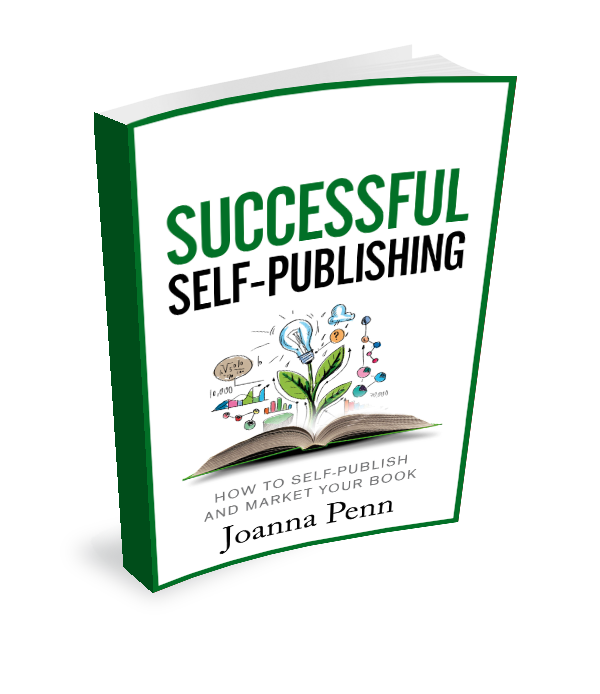Authors now have a choice in how they publish and get their books into the hands of readers. This article covers the pros and cons of traditional publishing and self-publishing.
Click here to get Successful Self-Publishing now.
You can also watch me discuss the pros and cons in the video below or here on YouTube.
Of course, you don't have to choose either/or. Many authors are now hybrids, using both forms of publishing for different projects, but hopefully, this will help you evaluate your own options.
What is traditional publishing or trade publishing?
Traditional publishing refers to the established system of getting a book deal, which involves submission to agents over a period of time, usually a number of rejections and then (hopefully) being accepted. Then the agent will submit the manuscript to publishers with usually a number of rejections and then (hopefully) a contract is signed. The book will then go through more edits and will eventually be published.
The pros of traditional publishing

- Prestige, kudos and validation. Most authors suffer from self-doubt and wonder if their work is good enough. If you make it through the process to get an agent and then a publisher, approval by these gatekeepers is usually validation that your work is good enough. Even if the book doesn't go on to sell very well, at least somebody thinks it's worthwhile. If your definition of success includes a traditional deal because of these reasons, then nothing else will do!
- Print distribution in bookstores is easier. This is what traditional publishing excels at and what their model is primarily designed to facilitate. Sales reps go around the stores and make it very easy for book buyers to select books they like and pay later on one invoice per publisher minus any returns. Books are usually in the store for a month and only remain if they are perennial sellers.
- An established professional team to work with. Editors, cover designers, formatters and (possibly) marketing help is provided by the agent and publisher as part of the contract. Marketing effort is usually related to how much is invested in the project, and marketing for publishing companies is usually to booksellers rather than consumers. But you should at least get a sales team to take books to bookstores. Many authors say they “only want to write,” which is why they want a publisher to handle the rest of it all.
- There are no upfront financial costs, and there's usually some kind of advance against royalties. You don't have to pay anyone to get a traditional publishing deal and if you are asked for money, then it is NOT a traditional
publishing deal. It's likely to be a vanity publisher and you should be very careful. The median author advance is currently around £6000 or US$10,000. Increasingly, there are now deals where the author will take higher royalties and a smaller advance, or no advance at all. Remember also that the advance is against royalties, which are usually 7-25% of net book price. So if you get an advance of $10,000, you then have to earn more than $10,000 out of your royalty rate on book sales before you get any more money.
- Literary prizes and critical acclaim are more likely through traditional publishing, and many literary prizes aren't even open to indie authors. There have been outliers, e.g. A Naked Singularity by Sergio De Le Pava which won the PEN/Robert W Bingham Prize, but it's still rare for self-published authors to even be allowed to enter literary prizes.
- Potential to become a brand-name author. There are only a few household name authors in the world: Stephen King, Dan Brown, J.K.Rowling and E.L.James for example. These are the superstar writers. Below them are the A list, most of whom have been writing for many years, people like Lee Child and Nora Roberts, who are treated very well by traditional publishing and wouldn't see any reason to move. Yes, there's a chance of becoming a writer of that stature through traditional publishing. It's like a lottery ticket. Definitely worth doing if you want to play the game but the odds are against you.
The cons of traditional publishing
These are the main issues with going the traditional route.
Incredibly slow process. Writing and editing will be the same regardless of how you want to publish. But then it might take you a year or two to get an agent. Then it might take a year to get a publishing deal and then it will likely be from six months to two and half years before your book is launched. So it's a very, very slow process, which is crazy in a world where you can publish on Amazon, and your book can be on sale within four hours and then you can be paid 60 days later.
- Loss of creative control. You give this up when you sign with a publisher. Many authors get titles, covers and marketing angles that they're not happy with. A friend of mine, Polly Courtney, famously resigned from her publisher on publication day because she was marketed as chick-lit when she writes gritty novels about social issues. She was angry and upset about losing that creative control. You may also get an editor you don't agree with, especially as many of the more experienced editors move up in the company or are working freelance for more money.
- Low royalty rates. Royalty rates are a percentage of the sale of the book. They're likely to be net, so all the discounts, returns, marketing costs and overheads are taken off the total before your percentage is calculated. Royalty rates for traditional publishing will usually range between 7% and 25%, with the latter on the unusually generous end. The rates will also differ per format e.g. ebook vs. hardback vs. audio. Royalty reports may come every six months for a specific period of sales and many authors report how difficult they are to understand. They may also not tally with the amount of money that you get in your bank account, so authors who are traditionally published can't really do a cash flow forecast for future income.
- Lack of significant marketing help. Increasingly, authors have to do their own marketing and agents will often seek out authors who have a ‘platform' or at least an email list of readers. If you do want a traditional publishing deal, make sure you ask them what is included for marketing and make sure you get more than just inclusion in a bookstore catalogue.
 Potentially prohibitive contract clauses.
Potentially prohibitive contract clauses.
This is worth its own section as there are a few issues that you need to watch out for.
One example is the agency contract, something that I have had personal experience with. A few years ago, I had two New York agencies interested in representing me and I went through their contracts. One of them included a clause where the agency would receive 15% of everything I published, regardless of whether they sold the work or not, and that included self-published work because they said that they would build my author brand, so they would be responsible for my success. Obviously I wasn't happy with this because I put a lot of work into my platform and building my own brand, and so I went with the other agency who had a simple clause that specified that they didn't receive any sales from my self-published work.
Another big issue is signing contracts where they take World English rights in all formats. Don't do that. (Unless the money is really worth it!) Your job and your agent's job, if you have one, is to keep as many rights as possible when you're doing a deal so you can exploit them in other ways. For example, you could just sell the US and Canada rights and then self-publish in the rest of the world. Be careful with formats as well, especially audio books. Many publishers take audio rights as part of a contract and then they don't actually end up recording it. You don't want that to happen. Either keep audio rights or specify a length of time the publisher has to exploit them before the rights revert to you.
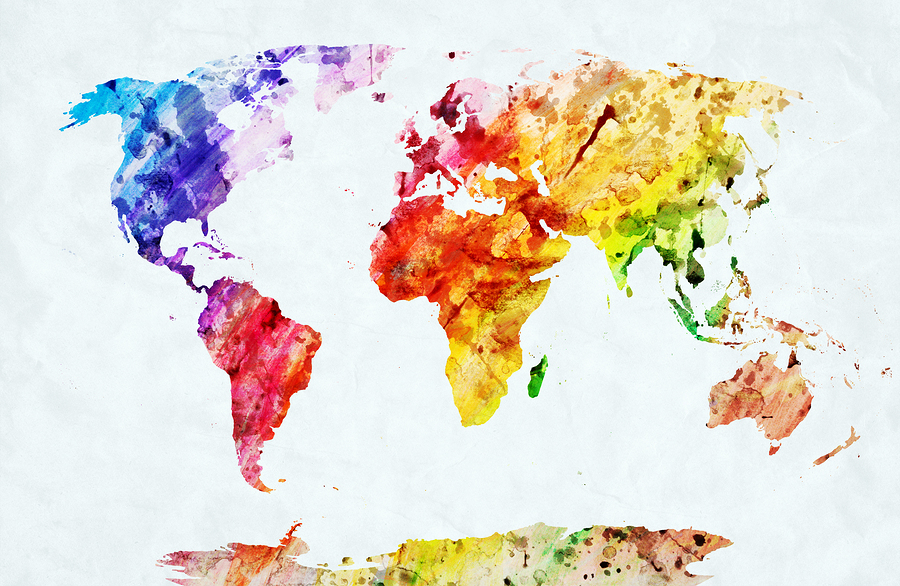
It's like a marriage. You don't plan for it to fail, but sometimes it just doesn't work out. (And I say that as someone who is very happily married – for the second time!) You want to be able to get out of this relationship if it goes bad, or if the publisher just isn't selling enough of your books and you think you can do a better job.
Once you sign a contract for your book, it essentially belongs to the publisher, and it may belong to the publisher for the life of copyright which is the life of the author plus 70 years after you die. That is a really big deal.
You should also look at the do not compete clause, because this may stop you publishing during the term of the contract under the same name, in the same world or with the same characters. For example, you might sign a three-book deal with one book coming out every year starting in a year's time. So, that's four years in which you may not be allowed to publish anything else under that author name, in that world with those characters.
You have to really consider whether the money for the contract is worth it. This is where many authors go a bit crazy, because they think, “I should just take whatever contract I'm offered.” Many authors will sign deals because they're grateful that they have been offered anything, but you need to value your work.
Remember how important your rights are over the long term.
Publishers are not charities. They are not doing you a favor by publishing your book. They are businesses and they want to make money.
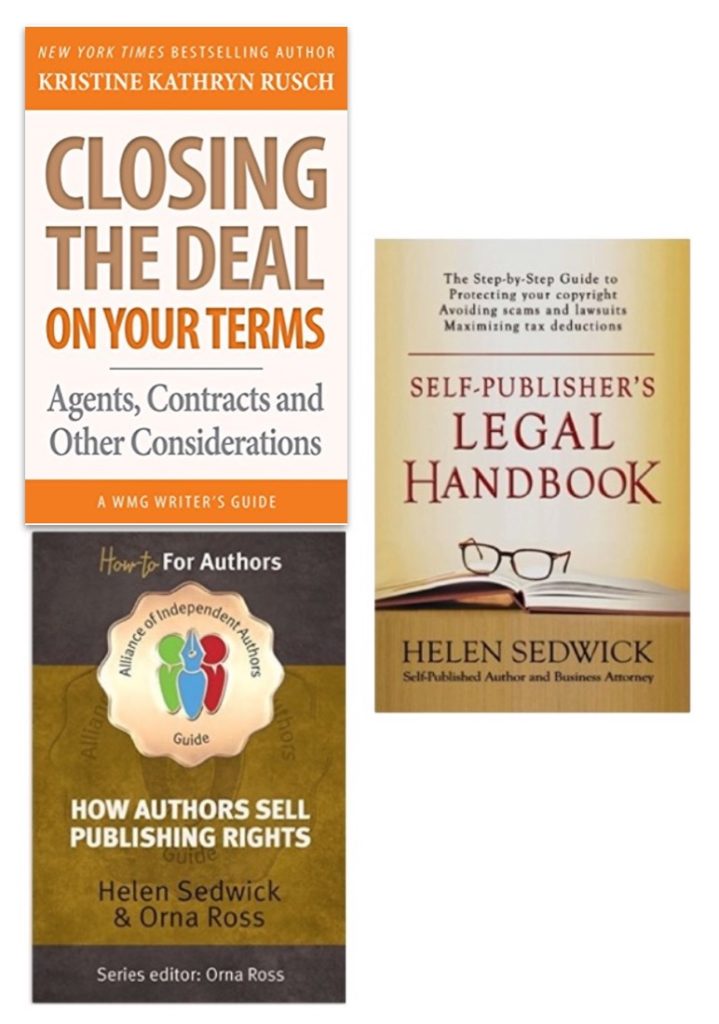
- Closing the Deal on your Terms: Agents, Contracts and Other Considerations by Kristine Katherine Rusch
- The Self-Publisher's Legal Handbook by Helen Sedwick
- How Authors Sell Publishing Rights by Orna Ross and Helen Sedwick
These books will help you with contract terms, so spend a few dollars on these books and you will save yourself money and heartache along the way.
To put the discussion about publishing into perspective, try this little exercise:
- Think of your favorite book
- What is the author's name?
- What is the publisher's name?
Most people will have a favorite book and they'll know the name of the author, but they are unlikely to know the name of the publisher. Most readers don't shop by publisher. Publishers and publishing names and imprints only mean something to authors and those in the industry.
So your publishing choice is more a question of the outcome that you want to achieve and your definition of success. It's not really what the reader thinks about.
Would I take a traditional publishing deal?
Absolutely. For the right project and for the right terms and conditions.
I do have a book with a German publisher and I have a literary agent who is actively working on foreign rights sales – in languages other than English. I'm also keen to exploit film and TV rights. I'd also take a deal in English for print format only, for sure, and I'll consider every decent offer for other rights. After all, I can always write more books!
But personally, I choose not to spend my energy chasing these deals. I choose to get my books out into readers' hands as soon as possible and take the cash sooner rather than later. I'm primarily an indie author, so let's now look at the pros and cons of self-publishing.
 The difference between self-publishing and being an indie author
The difference between self-publishing and being an indie author
The term self-publishing implies doing everything yourself and doing it more as a hobby. There’s certainly nothing wrong with this and it’s wonderful to create books in the world for the love of creation. I self-publish photo-books for my own pleasure, I helped my 9 year old niece self-publish her first book and I helped my Dad self-publish for his 65th birthday.
But I use the term independent author, or indie author, for what I do. I work with top freelance professionals to create a quality product and this is a business for me, not just a hobby. I make a multiple six-figure income as an author entrepreneur and being an indie is a positive choice, not a last resort.
 The pros of being an indie author
The pros of being an indie author
- Total creative control over content and design. Many authors who were in traditional publishing and are now in self-publishing talk about how painful it was to have a cover or title they hated, or to have editorial choices imposed on them that they didn’t agree with but were insisted upon.As an indie, you can work with freelancers of your choice and you can choose the ultimate look and feel of your product. Now, that can be a pro or a con depending on how the book ends up, but as an indie, you can also change it, as I have done by re-titling and re-covering my first three books. You just upload another file.The start-up mentality that mistakes are how we learn and ‘failure’ is just a step along the way makes this easier for indies. But this reinvention practice is also common in the publishing industry and older books are revamped all the time.
- Empowerment. At a recent literary festival I attended, I talked to a number of traditionally published authors. I was
shocked at how insecure they were and how beaten down by the negativity of the publishing process. They really didn’t see themselves as being able to make a decision alone or take action to improve their lot, despite the fact that THEY are the creatives, the storytellers, the brilliant ones.Compare that to indies, who in general are a happy bunch, as reported by researcher Alison Baverstock. It’s not surprising when you consider the research on ‘locus of control.’ The Journal of Personality and Social Psychology reported that the number one contributor to happiness is autonomy, “the feeling that your life – its activities and habits – are under your control.”After signing a contract, traditionally published authors have pretty much zero control – over pricing, timing of publication, marketing, sometimes over the cover, the title and even the words themselves. Plenty of authors are told to change their stories to fit what a publisher wants. Compare that to the empowerment of the indie author who can learn new skills, work with professionals, make mistakes and learn from them, earn money directly and interact with customers. Yes, it’s hard work, but it’s certainly empowering as hell. The positive energy involved in being an indie can propel you much further, much faster than waiting in line for your turn.
 Stop asking permission. You don’t need it. Stop waiting to be chosen. Choose yourself.
Stop asking permission. You don’t need it. Stop waiting to be chosen. Choose yourself.
- Faster time to market. You still have to spend the same amount of time writing and editing. But once you’re ready to publish, you upload your files to Amazon, Kobo, iBooks, Draft2Digital, Smashwords and any other stores. Your ebook is usually for sale within 4-72 hours. You’re paid 60 days after the end of the month of sale. If you’re doing print on demand, you can get that up within 24 hours if you approve the formatting online. Or, you can order a copy and it might take a couple of weeks, but essentially, it’s incredibly quick to get your book up for sale. This certainly suits my personality, as once I’m done with a book, I want it out there and selling! I don’t want to sit on it for several years while it shuttles around publishers.
- Higher royalties. If you price your book between $2.99 and $9.99 (on Amazon), you can get a 70% royalty. Traditional royalty rates usually fit in the 7-25% bracket, averaging 10%. It’s clear that you need to sell far fewer books in order to make the same amount of money with self-publishing. But it’s not a get rich quick scheme. That’s really important. You can’t guarantee that you’re going to make as many sales as you would’ve done with a traditional publisher, or indeed, any sales. That is more to do with genre, investment in marketing and sometimes pure luck. An author can’t build a business on luck – but they can learn about marketing, and authors have to do that these days, regardless of how they publish.
- Sell by any means in any global market, as you retain the rights. My books have now sold in 74 countries and they are for sale in 190 countries. I love to look at my Kobo Writing Life map to see which new countries I’ve sold to in
My map of sales from Kobo Writing Life the last month. I particularly enjoy selling in countries like Burkina Faso or Namibia in sub-Saharan Africa because I went to school in Malawi (no books sold there yet, though!)Yes, these sales are a trickle right now, but in the next few years, cell phone penetration will increase and internet access will become globally pervasive. Of course the sales will tick up – 2 years ago, I was only selling books in the US, UK, Australia, Canada and now every month another income stream starts up. This is for books in English by the way – we’re so lucky that English is the most international language.Many traditionally published authors have sold World English rights for all formats and yet have barely sold outside the usual country markets because their books aren’t even available in most places in the world. Many have also sold audiobook rights but the books have not been produced. If you’re in this situation, revisit your contract. What do you have the rights for? You can self-publish in countries where you haven’t sold the rights, so why not get on with it!
- Niche books can reach an audience. Publishing houses have an expectation of a certain number of sales, so if you’re writing a niche book on a particular type of organic tomato, for example, then you might find the market is too small for a major publisher. But the market size may well be enough for you to satisfy your own definition of success with smaller sales and lower income. You can also price as you like, as chances are that your book will appeal to a very particular reader who might pay higher prices.
- Use it to get into the game. These days, if you self-publish and do well, agents and publishers will come to you. You
don’t have to beg and plead for attention. The power balance is reversed and the empowered indie can get much better deals than a first-time author with no evidence of sales. Just look at the deals Hugh Howey, Bella Andre, Jasinda Wilder, Meredith Wild and A.G.Riddle have done in the last year for both print books and movie/TV deals. Or the incredible success of The Martian, which started off as a self-published ebook, then went into audio and then became a movie and worldwide phenomenon. And let's not forget 50 Shades of Grey which started out as self-published fan-fic before selling 65 million copies. So if you want a traditional deal, skip the slush pile and serve your apprenticeship as an indie.
 The cons of being an indie author
The cons of being an indie author
So there’s the positive side, but what about the negatives?
- You need to do it all yourself or find suitable professionals to help. As with any new skill, it’s a steep learning curve. You still obviously have to do the writing and marketing, but you also have to do the publishing. You have to find an editor (list here) and a cover designer (list here) and work with them, decide on the title, get your work formatted into ebook, print and any other format you want and find suitable professionals to help.This isn’t such a big deal as we all share with each other online and you can join The Alliance of Independent Authors which vets companies. But you do have to decide on your definition of success and understand that you need to run all aspects of the business if you want to go the pro indie route. For many people, this is a negative, because they just don’t have the time to do everything or they don’t enjoy doing it. I’m lucky because I love being an entrepreneur. I love all aspects of what I do – from idea generation to creating words on the page, to the technical side of things and everything in between. After many years, I’ve found the perfect work for me. If you can manage a project or you could learn to, then you’ll likely enjoy it too. But this life is certainly not for everyone.
- There’s no prestige, kudos or validation by the industry. The ‘stigma' lessens every day, but if your definition of success is bound up with what other authors, agents and publishers think of you, then indie might not be best for you.
- You need a budget upfront if you want a professional result. These days, you’re likely to spend on professional editing before submitting to an agent anyway, or at least be spending on books and courses for writers. Everyone
spends money on their hobby, so whether you’re knitting or writing or mountain biking, most people are happy to spend money they never get back on something they love.However, if like me, you’re intending to make a living from this, then yes, you need to invest money in creating intellectual property assets for the business with the intention of getting it back in multiple streams of income. Either way, you will need a budget upfront if you want to be a pro indie.
- It’s difficult to get print distribution in bookstores. It’s certainly not impossible and if you care about print distribution then look at the options with Ingram Spark. Also check out the Opening Up to Indie Authors campaign (or check out this interview with Debbie Young on the topic). But you’re much more likely to get bookstore distribution with a traditional publisher, as that’s essentially their business model and has been for a long time. They are experts at printing and distributing physical product. My personal choice is to use Print on Demand through Createspace, so my print books are available on pretty much all online bookstores.
- Most literary prizes don’t accept indie books and most literary critics for mainstream media won’t review them. So if your definition of success is literary acclaim, you’re probably better off going the traditional route. Again, the Opening Up to Indie Authors campaign is looking to address this over time.
 The hybrid model: It’s not an either/or choice anymore
The hybrid model: It’s not an either/or choice anymore
The industry has changed and many authors now take a hybrid approach to publishing. They will make the decision by book and by particular rights, using the indie model for some things and taking traditional deals for others. This empowers the author to make decisions and choose the best possible route for each project. After all, a career isn’t built on one book.
For example, Hugh Howey sold his print rights for Wool and did a number of foreign rights deals. Jasinda Wilder sold several new books to traditional publishers while continuing to self-publish another series. A.G.Riddle sold his film rights and kept his World English ebook rights as an indie. I have a German language deal with a traditional publisher and a literary agent who is handling other sales.
The important thing is that you, the creator, are empowered to choose per project how you would like to progress.
Other publishing options
I’ve used the two extreme ends of the publishing spectrum as examples but these days, there are many more options for authors. This downloadable chart by Jane Friedman gives a wider view of the options available.
There are new companies springing up every day – some of which are offering a good deal and some which are just sharks who may well take your money and run. Do your due diligence and get testimonials from authors who are happy to recommend the service before you sign anything.
If you want to use author service companies, then please check the following resources:
- Preditors and Editors – a watchdog site for authors with listings of which publishers are recommended and which are scams
- Writer Beware – Lots more about scams against authors and companies to watch out for
- Choosing a self-publishing service – by the Alliance of Independent Authors, available on all online bookstores. Written by authors and for authors so you get unbiased advice. Also check out the Self Publishing Advice blog which includes watchdog articles.
Need more help?
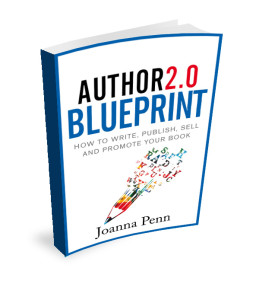
Check out the articles under Writing, Book Marketing or How to make a living with your writing next.
You can also listen to The Creative Penn podcast on iTunes here.
You can watch and subscribe to my YouTube channel here.
You can also get the ebook, Successful Self-Publishing for free on all ebook stores and it's also available in print.
 publishing deal. It's likely to be a vanity publisher and you should be very careful. The median author advance is currently around £6000 or US$10,000. Increasingly, there are now deals where the author will take higher royalties and a smaller advance, or no advance at all. Remember also that the advance is against royalties, which are usually 7-25% of net book price. So if you get an advance of $10,000, you then have to earn more than $10,000 out of your royalty rate on book sales before you get any more money.
publishing deal. It's likely to be a vanity publisher and you should be very careful. The median author advance is currently around £6000 or US$10,000. Increasingly, there are now deals where the author will take higher royalties and a smaller advance, or no advance at all. Remember also that the advance is against royalties, which are usually 7-25% of net book price. So if you get an advance of $10,000, you then have to earn more than $10,000 out of your royalty rate on book sales before you get any more money. Incredibly slow process. Writing and editing will be the same regardless of how you want to publish. But then it might take you a year or two to get an agent. Then it might take a year to get a publishing deal and then it will likely be from six months to two and half years before your book is launched. So it's a very, very slow process, which is crazy in a world where you can publish on Amazon, and your book can be on sale within four hours and then you can be paid 60 days later.
Incredibly slow process. Writing and editing will be the same regardless of how you want to publish. But then it might take you a year or two to get an agent. Then it might take a year to get a publishing deal and then it will likely be from six months to two and half years before your book is launched. So it's a very, very slow process, which is crazy in a world where you can publish on Amazon, and your book can be on sale within four hours and then you can be paid 60 days later. Potentially prohibitive contract clauses.
Potentially prohibitive contract clauses.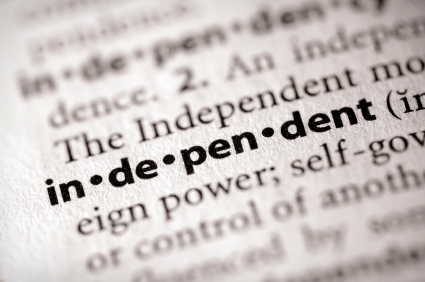 The difference between self-publishing and being an indie author
The difference between self-publishing and being an indie author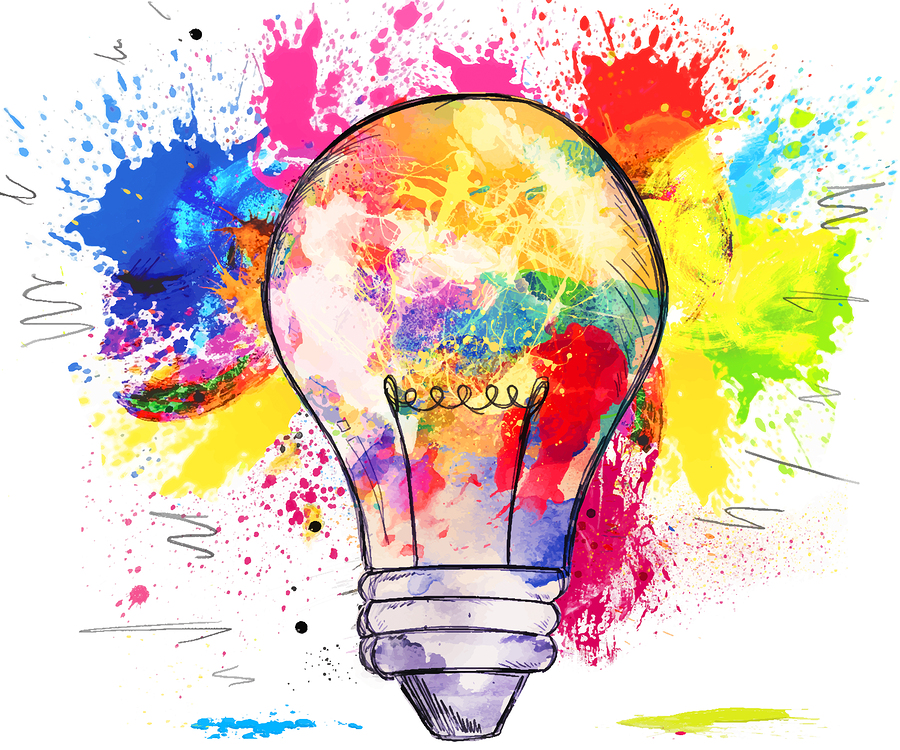 The pros of being an indie author
The pros of being an indie author shocked at how insecure they were and how beaten down by the negativity of the publishing process. They really didn’t see themselves as being able to make a decision alone or take action to improve their lot, despite the fact that THEY are the creatives, the storytellers, the brilliant ones.Compare that to indies, who in general are a happy bunch, as
shocked at how insecure they were and how beaten down by the negativity of the publishing process. They really didn’t see themselves as being able to make a decision alone or take action to improve their lot, despite the fact that THEY are the creatives, the storytellers, the brilliant ones.Compare that to indies, who in general are a happy bunch, as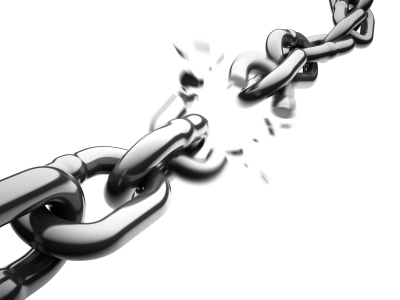 Stop asking permission. You don’t need it. Stop waiting to be chosen. Choose yourself.
Stop asking permission. You don’t need it. Stop waiting to be chosen. Choose yourself.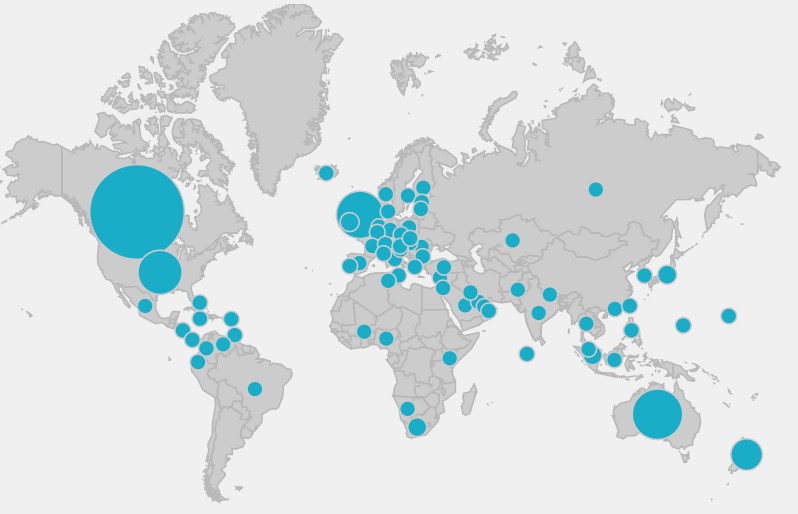
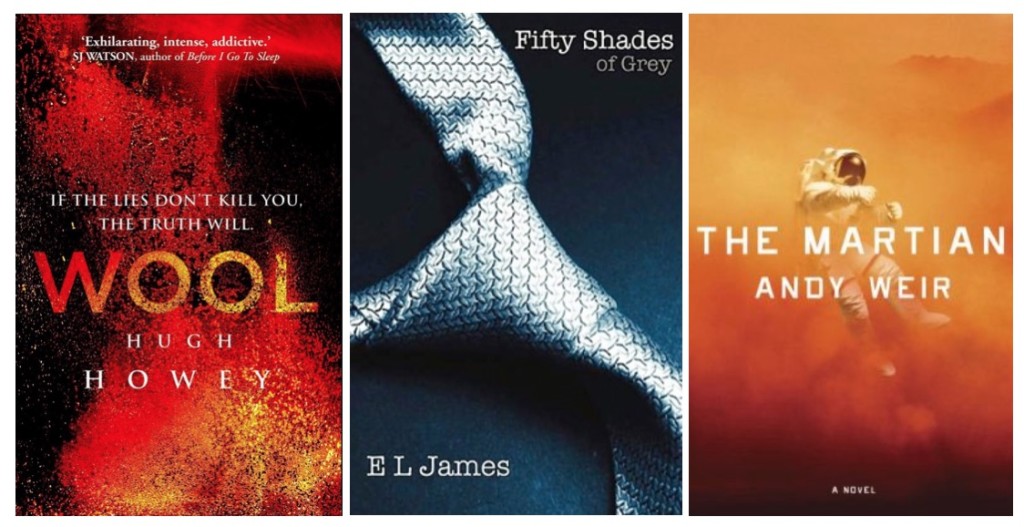 don’t have to beg and plead for attention. The power balance is reversed and the empowered indie can get much better deals than a first-time author with no evidence of sales. Just look at the deals Hugh Howey, Bella Andre, Jasinda Wilder, Meredith Wild and A.G.Riddle have done in the last year for both print books and movie/TV deals. Or the
don’t have to beg and plead for attention. The power balance is reversed and the empowered indie can get much better deals than a first-time author with no evidence of sales. Just look at the deals Hugh Howey, Bella Andre, Jasinda Wilder, Meredith Wild and A.G.Riddle have done in the last year for both print books and movie/TV deals. Or the 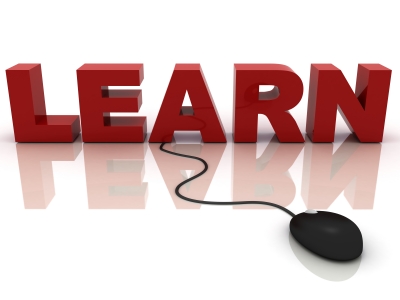 The cons of being an indie author
The cons of being an indie author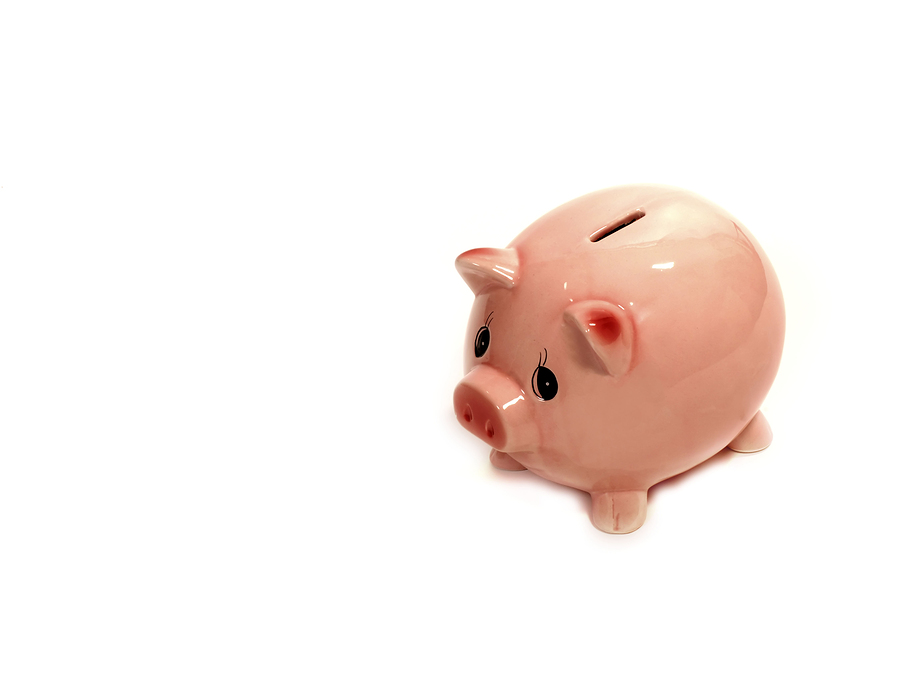 spends money on their hobby, so whether you’re knitting or writing or mountain biking, most people are happy to spend money they never get back on something they love.However, if like me, you’re intending to make a living from this, then yes, you need to invest money in creating intellectual property assets for the business with the intention of getting it back in multiple streams of income. Either way, you will need a budget upfront if you want to be a pro indie.
spends money on their hobby, so whether you’re knitting or writing or mountain biking, most people are happy to spend money they never get back on something they love.However, if like me, you’re intending to make a living from this, then yes, you need to invest money in creating intellectual property assets for the business with the intention of getting it back in multiple streams of income. Either way, you will need a budget upfront if you want to be a pro indie.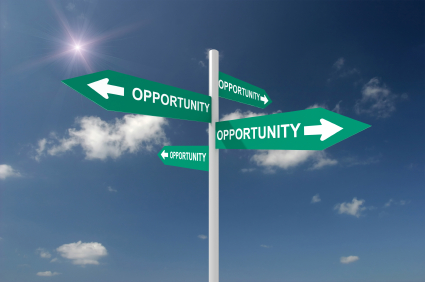 The hybrid model: It’s not an either/or choice anymore
The hybrid model: It’s not an either/or choice anymore